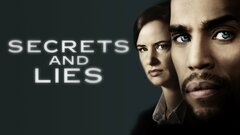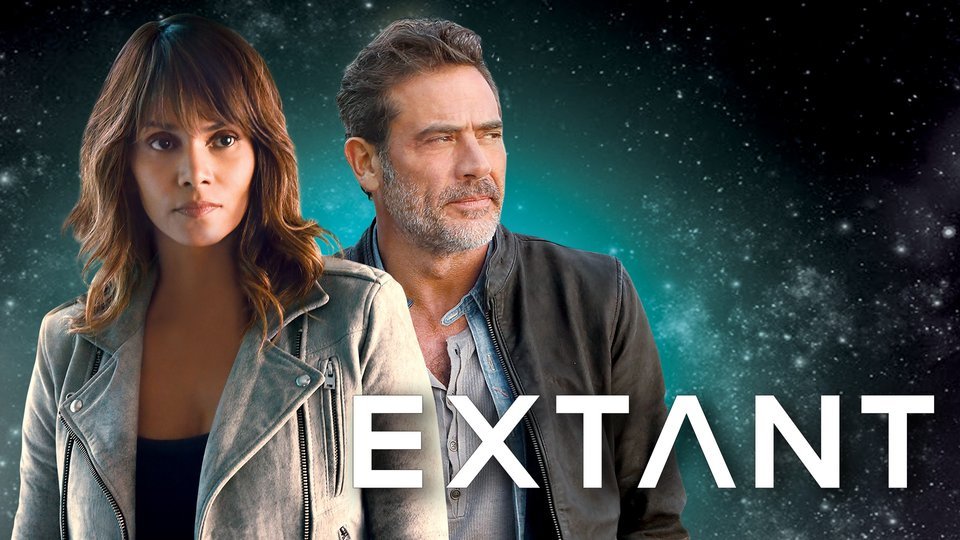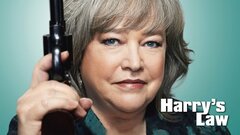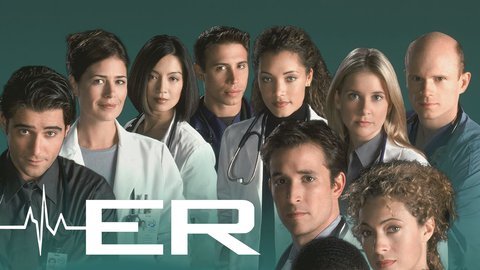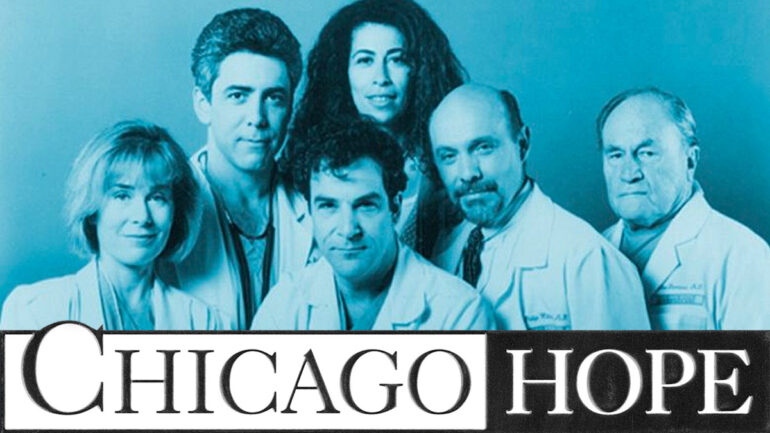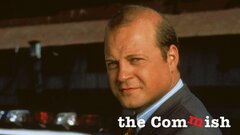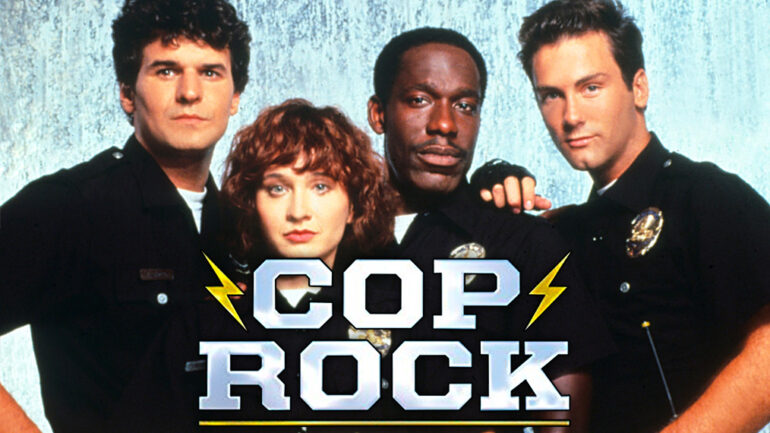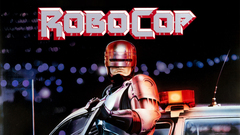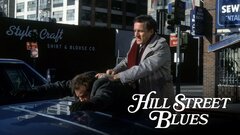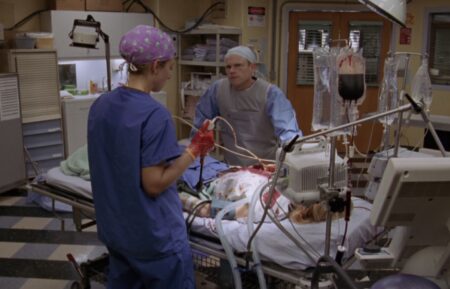For many television viewers, actor Paul McCrane is forever identified as the ill-tempered Dr. Robert Romano, whose reign of terror as chief of staff on "ER" (NBC, 1994-2004) ended spectacularly when a falling helicopter crushed him on the roof of County General. But McCrane's lengthy career showed a much wider range of talent, including a Grammy-winning turn as a talented art school student in "Fame" (1980) as well as stints on sitcoms and the Broadway stage.
McCane began his on-screen career as sensitive young men in "Fame" and "The Hotel New Hampshire" (1984), but by the mid-1980s, he shed his youthful appearance for a grittier look and segued into explosive character turns in "RoboCop" (1986) and "The Shawshank Redemption" (1994). Meanwhile, "ER" brought him widespread attention as a character that audiences loved to hate, and the exposure afforded him turns on "From the Earth to the Moon" (HBO, 1998) and "24" (Fox, 2001-2010). He went on to play a driven, but slightly unstable district attorney on the popular legal series, "Harry's Law" (NBC, 2010- ), which solidified McCrane's status as one of the small screen's most dependable character actors.
Born on Jan. 19, 1961 in Philadelphia, PA, McCrane he was raised in Bucks County by his father, John, an actor and writer, and his mother, Eileen, a nurse. At Holy Ghost Preparatory School, McCrane developed an appetite for performing in numerous school plays, which led to his first professional role as Shirley Knight's son in John Guare's "Landscape of the Body" (1977) at 16 years old. The following year, he appeared opposite Diane Lane in the o-ff-Broadway production of Elizabeth Swados' musical "Runaways," which was presented by the New York Shakespeare Festival.
McCranemade his screen debut as a bit player in "Rocky II" (1979) as a young boy who asked Sylvester Stallone's boxing champ to sign his arm cast. The following year, he won critical praise as Montgomery, an aspiring young singer struggling with his sexual identity in Alan Parker's Oscar-winning "Fame" (1980). McCrane also penned "Is It Okay If I Call You Mine?" and "Dogs in the Yard," the two songs his character sings in the film. Both were featured on the chart-topping soundtrack album, which earned him a shared Grammy in 1981.
Despite its success, "Fame" failed to ignite McCrane's movie career. Instead, he bounced between television and the stage for most of the early 1980s, including a Broadway revival of "The Iceman Cometh" (1985) opposite Jason Robards. His most significant feature of the period aside from "Fame" was the misbegotten film adaptation of John Irving's "The Hotel New Hampshire" (1984), where he again played a troubled gay character.
In the late 1980s, McCrane mounted a screen comeback as a character actor when his trademark mane of red hair started to recede and his youthful features had morphed into a chiseled appearance. The physical changed allowed him to make an ideal choice for tough, verbally aggressive figures on both sides of the law. He wowed audiences as Emil, the most psychotic member of crime boss Kurtwood Smith's gang in Paul Verhoeven's futuristic action classic "Robocop" (1986) and settled briefly into a string of antagonistic roles in features and television, including a skeptical small town deputy in Chuck Russell's remake of "The Blob" (1988) and a Phil Spector-esque record producer in the second season of "Wiseguy" (CBS, 1987-1990).
In 1990, McCrane joined the cast of the ambitious, but short-lived "Cop Rock" (ABC), while dividing much of his time between the small screen and the stage. The former offered him a wider selection of roles beyond his recent character turns in features, including Vanity Fair editor John Bishop in "Zelda" (TNT, 1993), with Natasha Richardson as Zelda Fitzgerald, and a rare romantic turn as Cecilia Peck's love interest in Arthur Penn's "The Portrait" (TNT, 1993), starring Peck's famous father, Gregory Peck, and Lauren Bacall.
Meanwhile, McCrane's stage efforts during the period included the original Broadway run of "Six Degrees of Separation" (1991). After a brief return to antagonistic roles as the sadistic Guard Trout in "The Shawshank Redemption" (1994), McCrane settled into steady television work where he demonstrated his versatility in a wide variety of roles. He was a series regular on the short-lived sitcom "Champs" (ABC, 1996) for producer Gary David Goldberg, before terrifying "X-Files" (Fox, 1993-2002) viewers as Leonard Betts, a mutant who could regenerate his body by devouring cancerous cells.
In 1997, McCrane landed the role that brought him his greatest exposure: the brash, bigoted but brilliant Dr. Robert "Rocket" Romano on "ER." Romano's talents as a surgeon were matched only by his boundless ego and combative nature, which put him at odds with nearly every member of the County General Hospital staff, until his fateful death in a freakish helicopter crash. For his efforts, McCrane received two Screen Actors Guild nominations with his cast for Outstanding Performance by an Ensemble, but more importantly, a permanent place in the minds of many viewers as one of the great hissable TV villains.
Though "ER" commanded the majority of McCrane's attention until 2003, he made appearances on several other series, including a turn as Gemini and Apollo astronaut Pete Conrad in the miniseries "From the Earth to the Moon," and later as Graem Bauer, the duplicitous brother of Kiefer Sutherland's Jack Bauer on "24." In 2011, he enjoyed a rare comedic turn on "Harry's Law," a comedy-drama legal series by David E. Kelley. McCrane played district attorney Josh Peyton, the intense, self-absorbed courtroom combatant to the earthy Harriet "Harry" Korn (Kathy Bates). At first, the role seemed a reprisal Robert Romano, McCrane grew the character into his own. Once again, McCrane found himself in awards contention, this time for an Emmy as Outstanding Guest Actor in a Drama Series.



